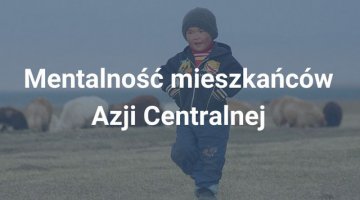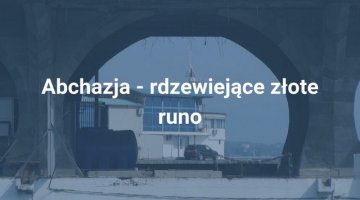Anti-Israeli riots in the North Caucasus
On 29 October, anti-Israeli and anti-Semitic riots broke out in Makhachkala, the capital of the North Caucasus republic of Dagestan. A crowd overran the airport and stormed onto the tarmac in search of Israeli citizens who were supposedly about to arrive on a direct flight from Tel Aviv. Twenty people were injured during the riots. The regional government, clearly surprised by the turn of events and their intensity, announced that it would punish the perpetrators severely. Within 24 hours of the riots, it had identified 150 participants and detained more than 80 people. A criminal case was also launched under the supervision of Aleksandr Bastrykin, head of the Investigative Committee of the Russian Federation. The security forces tightened security at synagogues in Dagestan while the Telegram site blocked Utro Dagestan, a channel allegedly administered from Ukraine, which was accused of inciting violence against Jews. Muslim religious leaders in the North Caucasus have condemned the anti-Semitic riots.
The storming of the airport coincided with a series of anti-Israeli incidents in some of Russia’s predominantly Muslim republics in the North Caucasus. In Nalchik, the capital of Kabardino-Balkaria, a Jewish community centre under construction was set on fire. Anti-Jewish and pro-Palestinian rallies took place in Cherkessk, the capital of Karachay-Cherkessia. In the Dagestani city of Khasavyurt, residents surrounded hotels that were allegedly housing refugees from Israel. In response to the unrest, the Russian Security Council, which usually meets on Fridays, convened for a special meeting on Monday, 30 October. Vladimir Putin opened the session with an emotional speech devoted entirely to his analysis of the unrest; he claimed that the US had inspired the riots, allegedly through Ukrainian secret services, and explicitly accused both the US and Ukraine of cynically fuelling anti-Semitic sentiments in order to destabilise and break up the Russian state. He directly linked the war in Ukraine, which he said the US has been waging by using Ukraine as a proxy, with Israel’s military operations in the Gaza Strip. In his interpretation, both conflicts (Russia’s with Ukraine and Israel’s with the Palestinians) have been provoked by the US, which has become the central player in these wars due to its support for both Ukraine and Israel.
Commentary
- The origins of the anti-Israeli riots in the North Caucasus can be traced to several factors. In addition to the solidarity with Palestine demonstrated by the region’s Muslim population and its resentment towards Israel in the context of the war in the Middle East, Chechnya’s leader Ramzan Kadyrov has also played a role in fuelling anti-Semitic attitudes. In recent weeks, he has aggressively positioned himself as a defender of the rights of Muslims and Islam, and explicitly sided with Palestine while condemning Israel. The leaders of the other North Caucasus republics have exercised relative restraint despite their declarations of sympathy for Palestine. Dagestan has proved particularly susceptible to radical outbursts; it is a multi-ethnic region with a significant fundamentalist Salafi minority that has been grappling with socio-economic problems and the activity of Islamist terrorist cells. Internal tensions in this republic have already boiled over before: there were relatively strong protests against military mobilisation in 2022, followed by rallies and roadblocks that were triggered by disruptions to water and electricity supplies in the summer of 2023. The situation was further exacerbated by the inadequate response of the regional government, which did not allow a pro-Palestinian rally to take place in Makhachkala in mid-October. In the end it was held illegally, but its participants were detained while those of conscription age received summonses to the military draft offices.
- The anti-Semitic riots in Dagestan were fuelled by the anti-Israeli and pro-Palestinian narrative of the Russian media, which have treated the Middle East conflict as a priority topic for several weeks now. Their coverage has been unequivocally pro-Palestinian and critical of Israel, sometimes even exhibiting purely anti-Semitic attitude. Given the high level of nationalism and xenophobia in Russian society, which has been regularly reported by sociological studies, the xenophobic content propagated by the Kremlin media has fallen on fertile social ground, especially in the Muslim regions of the North Caucasus, where the population sympathises with the Palestinians and even with Hamas. This has been compounded by the strong anti-Western (particularly anti-US) resentments that the Kremlin media have been stoking. They have been claiming that the conflict in the Middle East and Israel’s attack on Gaza are, after Ukraine, just another front in the same war that the ‘US elites and their satellites’ (in Putin’s words) have been waging against all the countries that have refused to submit to their waning hegemony. In this war, the United States’ main adversary is Russia, which has been fighting to liberate the world from the yoke of Western neo-colonialism, while both Israel and Ukraine are merely tools of Washington. Therefore, Russia is the natural ally and defender of the Palestinians, and its war in Ukraine is also a war for the liberation of Palestine.
- The large-scale, spontaneous riots in Makhachkala have created a major challenge for the government in Moscow, whose security services failed to prevent or control them in their initial stages. In this way it was made clear that the Kremlin is unable to diagnose and effectively control public sentiments in a timely fashion, at least in the North Caucasus. Paradoxically, the government itself contributed to the rising tensions through its xenophobic TV propaganda, as well as its nationalities policy which favours ethnic Russians. The riots in Makhachkala have also exposed the ineffectiveness of the administration and the law enforcement agencies, which were unable to either prevent or quickly suppress them. The government must be particularly alarmed by the readiness of some rioters to attack the security forces directly. In Russia, where no grassroots or spontaneous public activity is allowed and society is generally apathetic and passive, riots of this kind and scale are extremely rare. They undercut the claim that Russian society is totally passive and homogeneous: the anti-Semitic riots have shown that the North Caucasus, particularly Dagestan, stands out nationally for its greater capacity for grassroots mobilisation. This has been seen in the past on several occasions, for example during the protests by women against mobilisation, which were more numerous and longer-lasting in Dagestan.
- The response from Putin and Russian propaganda to the events in Makhachkala indicates that stability and internal security (to which any ethnic or religious riots pose a threat) are an absolute priority for the Kremlin. These local riots did not claim any lives, but the government treated them as if they posed a fundamental threat to the Russian state. Putin and his inner circle clearly believe that the demonstrations in Makhachkala were the result of a deliberate operation by US special services, which managed to uncover the regime’s weak spot: the potential for internal tensions in the North Caucasus. Consequently, we should expect the Kremlin to respond to these anti-Israeli riots harshly by severely punishing those who participated in the airport attack, by holding certain representatives of the regional government and services accountable, and by imposing greater social control in the regions. At the same time, even though it has recognised Israel as an ally of the US and an enemy of Russia, the Kremlin and its propaganda outlets will work to dampen anti-Semitic sentiments in Russia in order to avoid the social tensions that could pose a genuine threat to the Kremlin.





